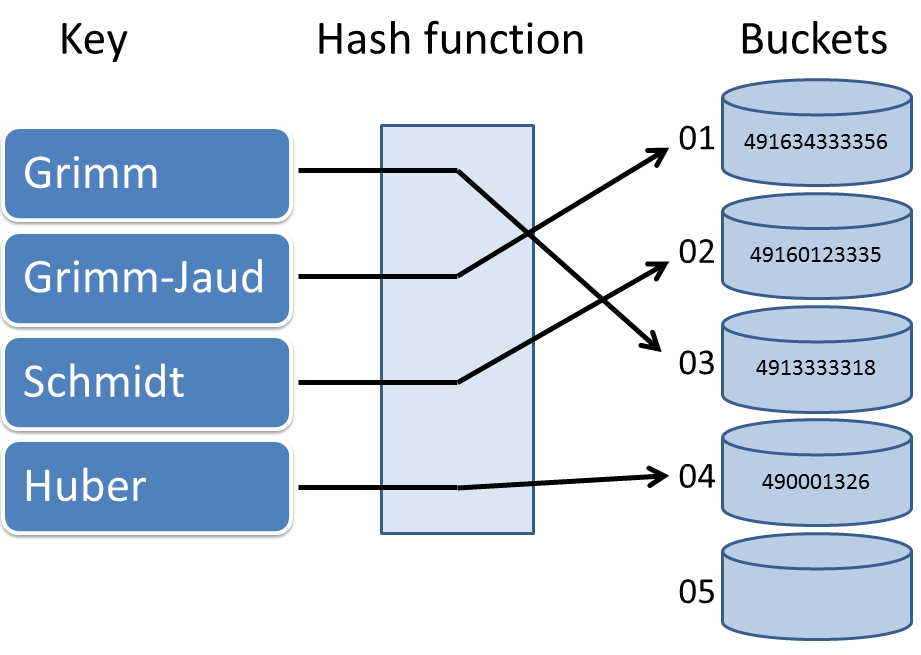Unordered Associative Container

Overview
With the new C++11 standard, C++ has four unordered associative containers: std::unordered_map, std::unordered_multimap, std::unordered_set and std::unordered_multiset. They have a lot in common with their namesakes, the ordered associative containers. The difference is that the unordered ones have a richer interface and their keys are not sorted.
This shows the declaration of a std::unordered_map.
template< class key, class val, class Hash= std::hash<key>,
class KeyEqual= std::equal_to<key>,
class Alloc= std::allocator<std::pair<const key, val>>>
class unordered_map;
Like std::map, std::unordered_map has an allocator, but std::unordered_map needs no comparison function. Instead std::unordered_map needs two additional functions: One, to determine the hash value of its key: std::has<key> and second, to compare the keys for equality: std::equal_to<key>. Because of...



